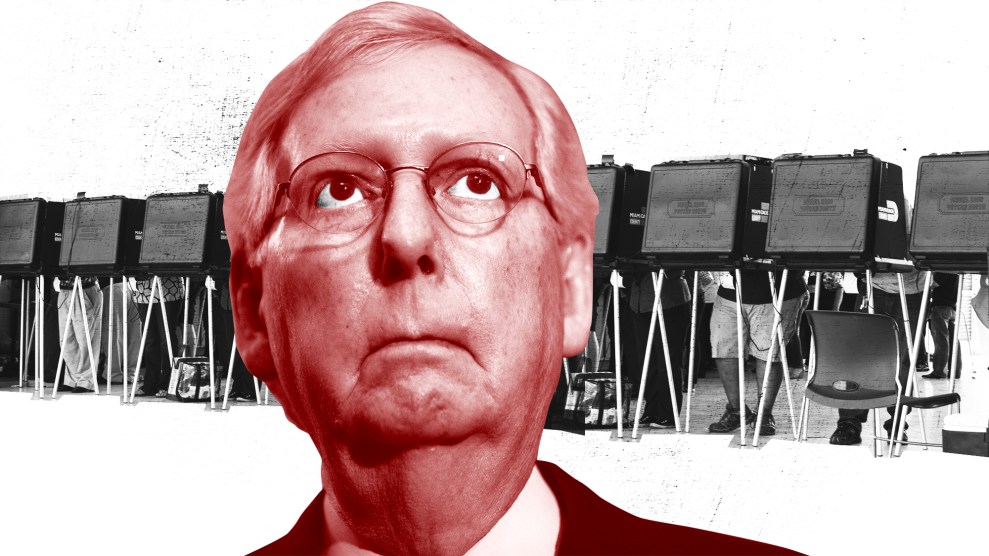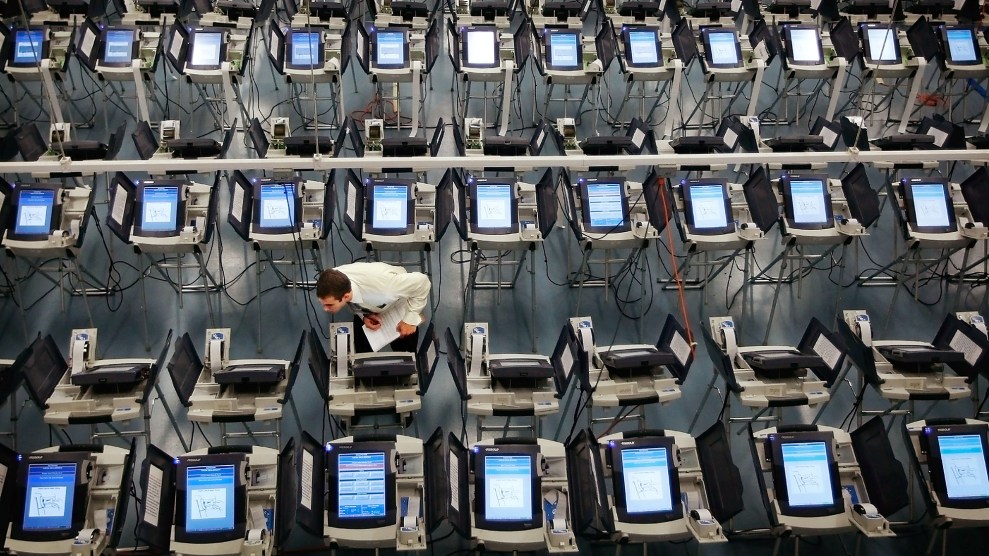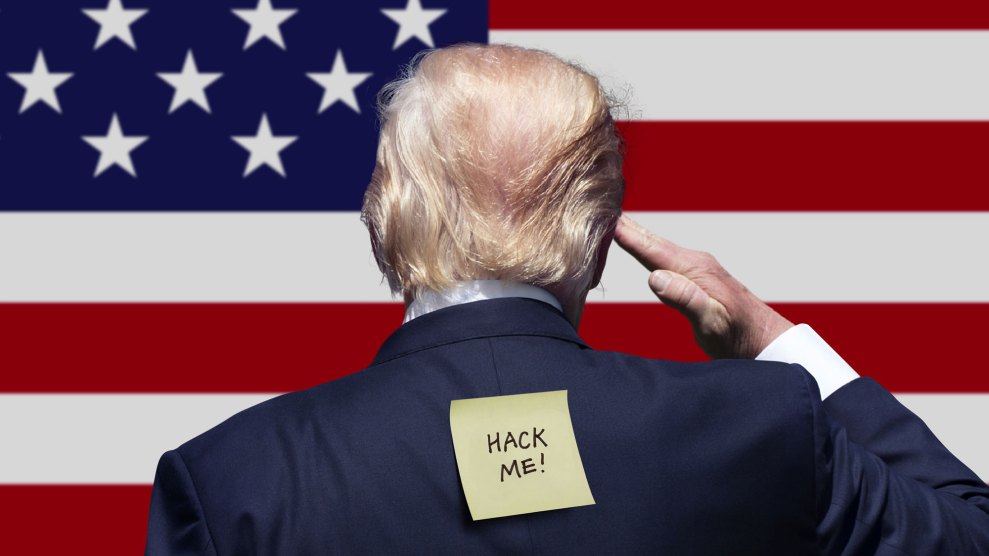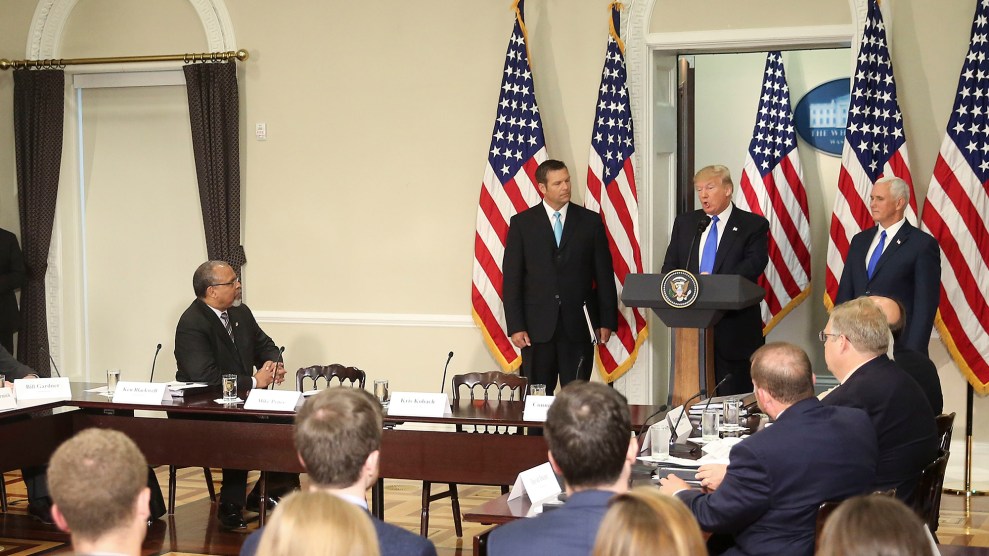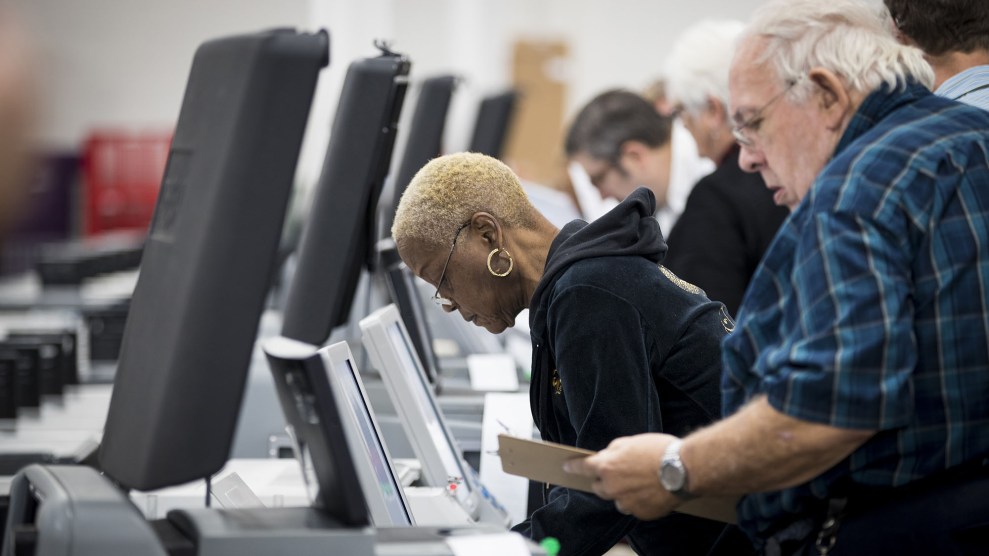
Renee Jones Schneider/TNS via ZUMA Wire
Congress will give states an additional $425 million in election security funding as part of the budget deal reached last week, adding a much needed, but still insufficient, boost to ballot security across the country.
The funds will be disbursed through the Election Assistance Commission, the federal agency tasked with coordinating state and federal election administration.
The $425 million is less than the $600 million House Democrats approved in June, but nearly $200 million more than the Senate Republicans’ offer, following the lead of Sen. Mitch McConnell (R-Ky.). McConnell, the senate majority leader, has steadfastly resisted expanding federal election security funding to aid cash-strapped states and local jurisdictions—even in his home state. After months of being accused of doing very little to stop foreign interference in elections, he relented in September, agreeing to a $250 million allocation.
The funding comes as part of an overall federal spending agreement that had been held up due to President Donald Trump’s push for money to build a border wall. Budget negotiators reportedly reached the deal last week, according to the Washington Post, which added that the House and Senate are expected to approve the deal this week. Trump will likely approve the deal, the Post reported, because it allows for some funding for his wall project.
In late November, as budget negotiations continued to drag out, a group of 38 senators wrote a letter to the leaders of the House and Senate appropriations committees urging the additional funding, along with an increased budget for the EAC. The budget deal announced Monday would increase EAC funding by $6 million to a total budget of $15.2 million. House Republicans have repeatedly tried to eliminate the agency, arguing that it is unnecessary and infringes on states’ control over elections; between 2010 and 2018 they cut its budget in half.
The $805 million is still well short of the estimated $2.2 billion needed to shore up election systems in the 10,000 voting jurisdictions around the country, many of which rely on dated or unsecure equipment. The experience of states that have worked to improve election security in the wake of the 2016 elections shows how expensive upgrading equipment can—just five states’ estimated investments totals more than $520 million:
- Officials in Kentucky reported in 2018 that overhauling their most needy systems would cost between $18 million and $28 million.
- In Pennsylvania earlier this year, officials estimated a more than $100 million bill for election security investments.
- Georgia officials put their tab at about $150 million.
- In Ohio, election officials asked the state for $175 million, but the legislature funded just $114.5 million.
- California lawmakers allocated $134 million in 2018.

